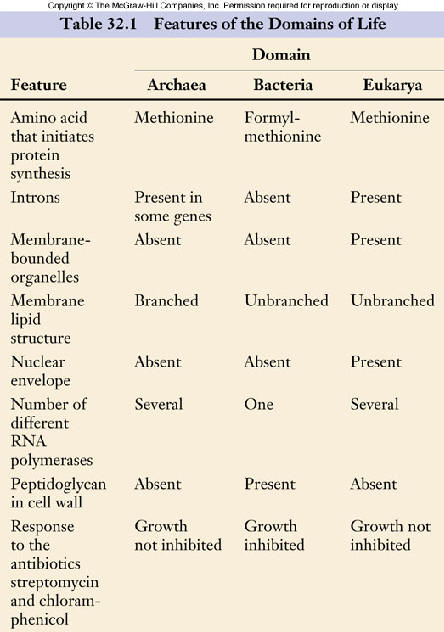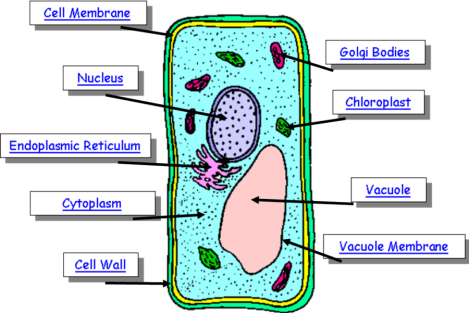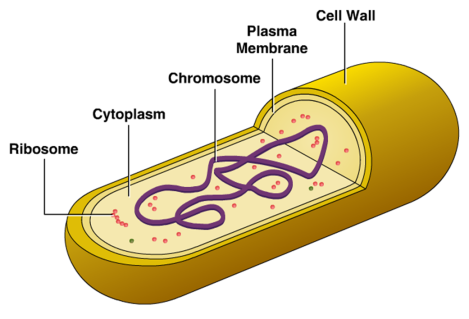So my friends the time has come. We have worked through some fascinating physics, we have considered the political implications of certain decisions on science. We have looked at some surprisingly interesting chemistry and even strayed into the realm of philosophy at certain times which has been of great interest. In fact the more I study physics the more I do appreciate the need for an understanding of philosophy and chemliteracy. But now we find ourself at the point we knew we would get to – the beast lurking in the shadows, the elephant in the room, sciences awkward little secret: biology.
My current course requires me to have a fairly shallow understanding of Biology – don’t get me wrong I have to study about 100 pages, but even so it is enough to leave a taste in the mouth. Now I am coming to the end of the biology I thought I would start by giving my reflection on the subject as I have studied it, and then talk about something I actually did find of reasonable interest, which is the endosymbiotic theory.
So the conclusion is I am afraid I do not like biology. It just isn’t right with me. For a start, I have found myself so desperate for mathematics I have been googling “tough differential equations” to get my kicks before bed (yes, this is my porn). I appreciate that biological research and modelling does require fairly advanced mathematics, but the study of it really does not. Oh the words the words the endless words. It is just definition after definition followed by more definitions – I have developed a new found respect however for those who can keep all of this in their brain, it is a monstrous task to try to keep all of this information right where you need it. But this is not my biggest gripe.
The big issue? Rules – or lack thereof. I am a physicist – the reason of my hydrocarbon chains traversing over planet Earth is to develop a richer and deeper understanding of the laws that govern us. To describe the universe in the simplest laws possible – to seek, to understand – to rationalise. You are indeed on rationalising the universe. Do you get laws in biology? Yes. Are they proper laws? No. For example a certain type of organism is unicellular. Oh well except for that one multicellular type -that one isn’t. Plants, oh right yeah they are autotrophic. Well in general anyway, the ones that eat flies are not. How in the name of science are you supposed to make sense of all of this! I come from a world where absolute rules are something which we search for endlessly. When we find exceptions, for example Newton’s laws of gravitation differing for certain observations we realise the rule isn’t correct and we define a new understanding, which holds until we find a new inconsistency. This approach really went against the grain.
Having had a colossal moan over why I am a physicist and not a biologist, I make reparations with biologists. It is fascinating in many senses and it is indeed a very important study to the human struggle for a better life. I always appreciated that there were different types of cell, as summarised by this table.

The domain of Eukarya is the most commonly known one – that contains the most familiar cell types of the animal, the fungus and the plant (plus others) with bacteria (or commonly called “true bacteria” being a distinct domain. Archaea are in many ways similar to bacteria – as can be seen by the similarities in the table, however there are some more subtle differences. The most important distinction between the cells is the fact that in the domain of Eukarya the genetic information is stored in a membrane bound nucleus, whereas in the other domains the genetic information is unbound.
The quest of evolution is trace the species back to the ancestor – to label down in a top down approach so that we know exactly how all of the different species came to be. Well in the 1960s the same question was posed by Lynn Margulis. Have a look at this cell, this is a “typical” plant cell – the cells are specialised depending on where they occur on the organism.

Now take a look at this bacteria cell, again considered to be a “typical” cell.

These cells are fundamentally different, but our experience of evolution tells us everything comes back to a common ancestor. This is the theory that is put forwards in the endosymbiotic theory – that every single different cell can be traced back to one common ancestor – the seeds of life. What ended up happening in the beginning is different cells from the common ancestor were all different types of prokaryotic cells, which developed different specialisms. Eventually what happened is cells ended up engulfing these specialised prokaryotic cells, in a mutually beneficial living arrangement – eventually these foreign bodies within the cells became an integral part of the cells, what we now call organelles.
Whilst there isn’t yet a totally definitive way of saying if this is totally true, it is consistent with the observed patterns in biology in the modern experience. This is of course a fairly simplified view – and the overall theory is much more advanced; there are specific organelles that developed to become the mitochondria, whilst others developed to become the chloroplasts in plants; and so on giving the variety of cells we have today. This is totally consistent with the fact that whilst there are great differences between all of the cells within the biosphere – there is a deep and underlying unity within them that cannot be ignored. Where there is an underlying theme or a pattern, there must (surely) be a richer underlying simplicity – and this we believe is it. I think this picture, entitled the tree of life sums this up very nicely.


Each to their own 😉 I have to object that biology doesn’t have laws, but I think the thing is that the laws living organisms obey are…the laws of physics. It’s a reductionist thing. You can explain muscle contraction, for example, as a simple mechanical system of levers – but then you ask, what makes the lever move? Then you start getting into chemistry, and how the different types of molecules behave in a structural, mechanical sense and also how energy is used in this process (which is quantifiable). You might like biochemistry, in fact, which has lots of equations for things like energy balance. The chemistry of the molecules, of course, can be further reduced into the laws of physics. The most important thing is that everything must be understood in the context of the theory of evolution. Trying to understand how organisms arose and why they are the way they are can only be explained by this, and it does make it easier, ultimately. Otherwise it is probably a bit like trying to explain planets without gravity. You are correct about the definitions though! I seem to remember that learning biology to any degree of proficiency, you are essentially expanding your vocabulary by the equivalent of another entire language, in terms of word count.
LikeLiked by 2 people
I have been looking at biochemistry in one of my previous posts… it’s just most painful. The laws I talk of are the ones for classification of species they are just all over the place! I cannot remember which scientist said it, but someone called Biology the science of contradiction and I could not agree more! Some of it can be reduced to Physics, but then that leaves me begging the question why not just do physics…. I think I didn’t really go into this in an open minded way… I am a physicist at heart and I sort of knew I wouldn’t enjoy biology. Perhaps one day I will rekindle that love – indeed there is much good that has been done by physicists working in the field of biology, the discovery of the structure of DNA for one!
LikeLiked by 3 people
Thank you for following , your blog is so interesting
LikeLiked by 2 people
Thank you very much!
LikeLiked by 1 person
hey 🙂 , ur blog is really interesting , i was always in love with science since the day i realized its meaning 🙂
LikeLiked by 2 people
Thank your very much and I am glad you share my passion for science! It is a wonderful thing
LikeLiked by 1 person
Yeah it is.. science is love
LikeLiked by 1 person
Who mentioned maths? *shudders*
I could have done with a loan of your brain power a few years ago on a particularly gruelling planetary science course. Alas, you have come into my sphere of vision far too late. Any chance of folding a bit of space and correcting that? *smiles*
LikeLiked by 3 people
Planetary science is very very interesting but yes you do need mathematics to get into the richness of it! I am afraid not; although it is never too late to study a second time round, I am indeed on undergraduate number 2!
LikeLiked by 2 people
A second time? Do it again? *whimpers* Don’t make undergraduate 3 Psychology, will you, it might not be your calling…just saying ;-D
I scrapped by on shields for that particular part of the course and caused minimum damage to (what was left of) my pride. It was as much as I could hope for with what I had to work with…*laughing at self*
No, I have got all the certificates I desire and am at the age where my research is my own 😉
Good luck with your studies, wherever they may take you!
LikeLiked by 1 person
The reason why we have so few laws in biology is because we have one law to rule them all; and the one thing that is universal throughout all extant life on Earth is the necessity to survive.
If you have not encountered it yet, you may appreciate Richard Dawkins’ Selfish Gene approach. All of the contradictions and exceptions to the norms in biology can pretty much be side-stepped once you consider that it is not the overall organism that is striving to survive but the individual genes themselves. You can see conflict and cooperation occurring within an individual genome.
LikeLiked by 3 people
I have not read it actually – I have read the God Delusion but it is an interesting concept that you raise. To be honest it is just a very different way of approaching science. I am not in any way saying it’s wrong… it just is so far away from what I am used to it really goes against the grain. I will have to check the book out and see if it changes my opinions!
LikeLiked by 1 person
Nothing will change the messiness of biology. It’s the blatent lack of hard-core maths that attracted me to it in the first place. I love the chaos! I just thought that the Selfish Gene (a real science book – unlike God Delusion) may appeal a bit more to you physics background. I say this not having read it, but I covered it at uni and he’s repeated key parts in some of his other books that I have read. It certainly strips back the variables that are seen on the whole organism level and gives an interesting new perspective.
LikeLiked by 1 person
It is good that one mans dislike is another’s like – otherwise what would happen is we would always study the same things and leave out the important things. Thank you for the recomendation it does seem worth a read for sure
LikeLiked by 1 person
Although not quite physical laws, Biology can be encapsulated in the understanding of concepts such as the selfish gene, game theory, reciprocal altruism, kin selection and the like. Once you superimpose biology onto such ideas, all makes sense in a unified kind of way (if that makes sense)
LikeLiked by 2 people
Yes I suppose they are there, they have their laws I just like life to obey robust laws. Three letters that convert energy to mass… a simple expression of the energy changes as things move… even a complex mathematical expression describing a quantum field – it’s so robust. Maybe one day I will be able to breakthrough and look at biology with the same eyes… maybe!
LikeLiked by 1 person
I still ever to this day my Biology high school teacher. Biology, she pronounced, is the knowledge of life. Life is messy and so is this science.
I guess you two agree 😊😊
LikeLiked by 2 people
Reblogged this on Still Another Writer's Blog.
LikeLiked by 1 person
Why, oh why could not my science teachers have been as interesting as you and those who follow your blog?!! I wouldn’t now be stuck trying to finish learning the little I was expised to in high school!!
Still and all, I’m glad you’re around now, else I’d REALLY be have a tough go of it!
Great post, as always, Joe 😊
LikeLiked by 1 person
Well I think it is more a fault of the very rigid curriculum they have to keep! Here we can ebb and flow through the most interesting parts of science with no hoops to jump through but our own. Thank you for reading 🙂
LikeLike
I have heard it said that biology is just applied chemistry, which is applied physics, which is applied mathematics. I studied biochem in college because biology was too easy and physics was too hard. 😉 Great blog!
LikeLiked by 1 person
Physics is never too hard! Especially if you can cope with biochem too! THAT is hard
LikeLike
Haha, to each his or her own! Biochem is my jam. Calculating the forces acting on blocks moving up and down ramps… not so much.
LikeLike
And don’t get me started on QM! Physical chemistry was THE most challenging class I ever took.
LikeLiked by 1 person
Physical chemistry does seem very hard indeed yes! I suppose it is one of our greatest strengths that we all have different interests… if we all did Physics progress would be a lot slower in some important areas!
LikeLike
Physics is the ground up approach towards understanding biology (and everything else).
The human brain cannot naturally grasp the unimaginable complexity of biological systems, so the scientific rules of biology are seriously challenging to establish with firm consistency (but enough of this ‘duh’ moment).
Granted quantum physics is no scientific picnic of ease, but I digress a bit.
If physicists mathematically sufficiently remove the unproven barrier separating the fabric of space from its occupants (basically a space to energy equation similar to Einstein’s mass to energy one), so dramatically increase spatial flexibility (e.g. a [likely much] more complex dimensional signature possibly, if not probably, exposing the unperceived location of the flow of phenomena such as dark energy, dark matter and gravitons in general, virtual particles, the connection of entangled particles, and so on), then a stronger base of human understanding — that can be leveraged by evolving computers running (likely much) more realistic/complex energy simulations — should strengthen the consistency of biological rules.
In other words, when space and mass are both concluded to be energy, the purely sinusoidal nature of reality (i.e. the absence of objective distinction — including that involving observation itself) becomes scientifically clear, and physicists can then focus firmly upon evermore complex applications of Fourier series (i.e. sine wave combinations, if unclear) — perhaps even to the complexity of fully understanding the tree of life.
For solid example, I would love to see energetic space mathematically connected with the wave function in quantum physics (which I logically, albeit terribly amateurishly, assume is possible).
As an entertainer, entrepreneur, technologist, and personal caregiver with other tasks even outside of those roles, I do not have the resources for this mathematical pursuit, although I am trying to learn more about the math of space today to aid in my scientific proposition. If you have a post on the math of space (or otherwise author one), I would love to read it.
The sine wave is the scientific path (and truest base) of understanding, but physicists continue to focus upon complexity defined to a degree negating that fundamental point — and that must change (preferably now) for physics, chemistry, biology, and cosmology.
Since humanity (including science) is an energetic and seamless part of reality, the relative energetic nature forming sinusoidal shaping (i.e. the shape of sinusoidal constructs is purely contingent upon the shape of energetic perception — shape is purely relative) remains the challenging scientific limit of understanding.
The bottom line here is apply the purely sinusoidal nature of reality to well-established mathematics, and upon success, the reach of science will logically strongly grow.
LikeLike
Pingback: Space is Energy | Spirit Wave Journal·
Very nice post !! Been a physicist have you ever tried comparing or merging Biology and Physics!!! Never heard of Bio-physics
LikeLike
nice work
LikeLike